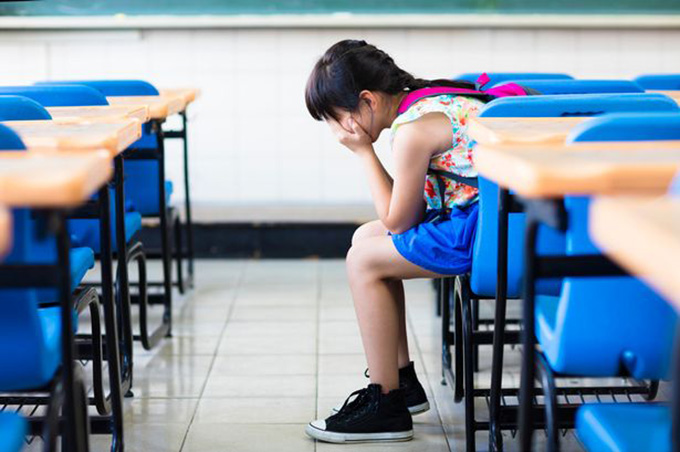
There is a growing crisis within children’s mental health, and this is not a term used lightly – between 2010 and 2015 there was a 50% increase in hospital admissions because of children self-harming. And in 2016 Childline reported the highest ever number of callers expressing suicidal thoughts. This is a figure that has doubled over the last five years.
A report by the Children’s Commissioner for England warned that more than 800,000 children were living with mental health issues in the UK, with a large proportion from vulnerable families. Issues they face include parents with alcohol addiction, involvement in the care system, as well as dangers posed by street gangs and modern slavery.
As children’s mental health becomes one of society’s most pressing issues, many teachers find themselves on the frontline – with the effect being felt in schools across the country. In 2017, 79% of teachers in both primary and secondary schools reported seeing an increase in stress, anxiety and panic attacks in their pupils as well as a rise in depression, self-harm and eating disorders. But without specialist training – which isn’t currently a requirement – a lot of those working in schools feel unprepared for the challenges they are facing.
With this in mind, below are a few ways schools can try and help.
1. Start talking about it
Mental health needs to be integrated into the school curriculum, which will help increase understanding and reduce stigma around issues. Without this, pupils may not be aware their mental health is deteriorating and feel silenced or shamed when seeking help.
If both pupils and teachers have more open discussions about mental health, issues will also be easier to identify early on, and this will help to build students’ knowledge and understanding of the subject.
Ideally, mental health needs to be talked about the same way physical education or healthy eating is, because research has found that when schools adopt a comprehensive approach to discussing mental health it supports all pupils – including those who are experiencing mental health difficulties already.

Sharing’s caring. Shutterstock
2. Create a safe space
Students do better in schools when they feel safe – this means ensuring that bullying incidents are low and addressed, including the rising incidents of cyberbullying.
The evidence also shows that when students feel a sense of belonging, have good peer and teacher relationships, and feel listened to when they raise concerns, also helps to support positive mental health in schools.

It’s good to talk. Shutterstock
3. Support for all
Everyone in schools from the teachers to the teaching assistants, the school lunch staff to the school nurse, all have a role to play in improving the school environment – and making it more open to discussions around mental health.
But they can do only do this if they are supported and healthy themselves. Looking out for the well-being of staff will itself have a positive impact on the students. And research shows that when staff are trained in mental health they are more confident in supporting their students. The same research also showed that this additional mental health training even helped to boost staff’s own resilience and job satisfaction.

It’s a team effort. Shutterstock
4. Make sure teachers know how to help
Headteachers should demand mental health training for all new teachers. And before a school takes on a new or trainee teacher, they should ask to see what mental health training they have. This could include an understanding of the risk and resilience factors for their students, how to spot the signs of mental ill health, along with how to support and get help for students at risk.
This will ensure that all new teachers have a basic understanding of the mental health challenges they will face, and will make it easier for them to help pupils in need.

Knowing how to help is half the battle. Shutterstock
5. Recognise that it takes a village
Looking after children’s mental health isn’t just something that can be done on a small scale, it involves a shift in the way everyone not only works together, but also communicates on issues.
The good news is there are lots of additional things schools are already doing in this area, including working with parents and having staff as mentors for vulnerable students. Many schools have also introduced peer mentoring, where children are partnered up with older children who can look out for them.
Running extracurricular social activities for pupils has also been shown to help have a positive impact on students, by providing a space for them to work through their emotions and develop strategies to address their challenges.
Author Bio: Damien Page is Dean of The Carnegie School of Education at Leeds Beckett University
